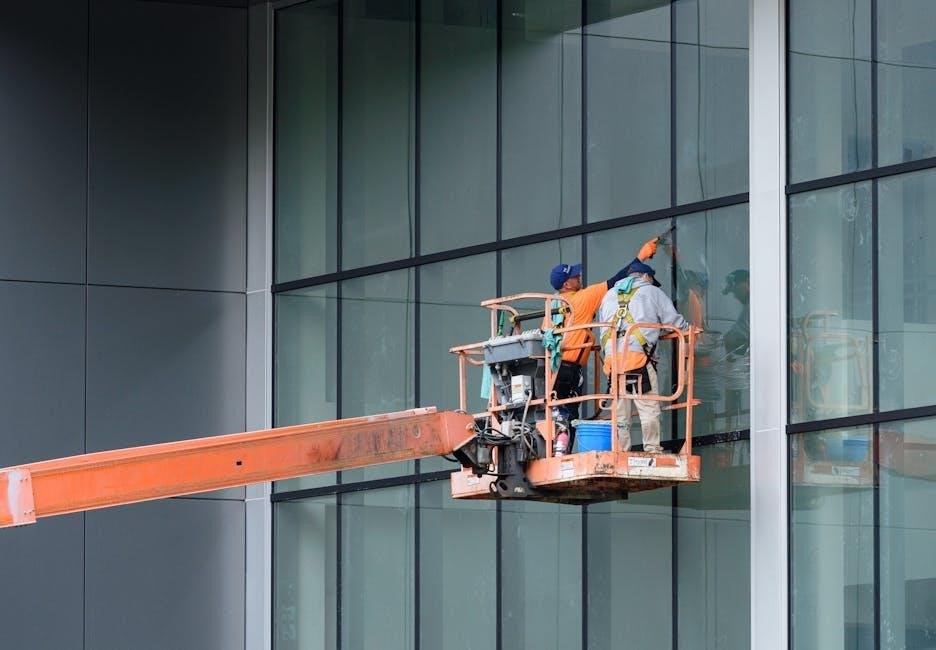The 2024 pay rise for childcare workers in NSW is a significant initiative aimed at enhancing the sector’s quality and affordability, addressing low wages and high turnover rates.
This historic decision reflects the Federal Government’s commitment to supporting early childhood educators and ensuring access to quality care for families across New South Wales.
1.1 Background and Context
The 2024 pay rise for childcare workers in NSW is part of a broader initiative to address the challenges faced by the early childhood education sector. Historically, the sector has struggled with low wages and high staff turnover, impacting service quality and accessibility. The Federal Government, in collaboration with state authorities, introduced this pay rise to recognize the critical role of childcare workers and to align their compensation with the importance of their work in shaping early childhood development.
The initiative is supported by the Sector-Wide Agreement, which aims to enhance workforce stability and professionalism. This move follows years of advocacy by early childhood educators and unions, highlighting the need for fair pay to ensure sustainable and high-quality care for children across NSW.

1.2 Importance of the Pay Rise
The 2024 pay rise for childcare workers in NSW is crucial for addressing low wages and high turnover rates in the sector. It recognizes the vital role of early childhood educators in shaping children’s development and ensures fair compensation for their expertise. This initiative aims to enhance job satisfaction, reduce staff turnover, and improve the overall quality of care. By valuing childcare workers, the pay rise supports the sector’s sustainability and aligns with broader policy goals of improving early childhood education outcomes.
Key Details of the 2024 Pay Rise
The 2024 pay rise provides a 15% wage increase for childcare workers over two years, with 10% in 2024 and 5% in 2025, funded by the Federal Government.
2.1 Structure of the Pay Increase
The 2024 pay rise for childcare workers in NSW is structured as a 15% wage increase over two years, with 10% implemented in 2024 and an additional 5% in 2025. This phased approach ensures a balanced distribution of funds, supporting workforce stability. The increase applies to all eligible early childhood educators, with the Federal Government covering the costs. Additionally, a 3.75% raise from the annual wage review, effective July 1, 2024, further enhances the package, ensuring fair compensation and improved working conditions for childcare professionals.
2.2 Timeline for Implementation
The 2024 pay rise for NSW childcare workers is implemented in phases, with the first 10% increase effective from July 1, 2024, and an additional 5% in 2025. The Federal Government’s funding commitment ensures a structured rollout, aligning with the annual wage review. The Fair Work Commission’s June 2025 decision confirms the updated rates, applicable from July 1, 2025. This timeline ensures educators receive incremental increases, supporting workforce stability and reflecting broader policy commitments to early childhood education.
2.3 Funding Sources
The 2024 pay rise for childcare workers in NSW is primarily funded by the Federal Government through the Wage Justice Bill and the Sector-Wide Agreement. These initiatives allocate specific funds to support wage increases, ensuring affordability for providers. The government’s financial commitment covers the majority of the cost, with additional contributions from the annual wage review adjustments. This funding ensures the pay rise is sustainable without placing undue financial burden on childcare services or families.

Eligibility Criteria for the Pay Rise
The 2024 pay rise provides a 15% wage increase over two years for eligible childcare workers, targeting those employed in early childhood education roles, meeting specific criteria.
3.1 Who Qualifies for the Increase
Eligibility for the 2024 pay rise includes early childhood educators, teachers, and support staff employed in approved childcare services across NSW. The 15% wage increase over two years applies to workers directly engaged in childcare and education roles, ensuring fair compensation for their critical contributions. This initiative targets those employed in long daycare, preschools, and out-of-school-hours care, aiming to recognize their dedication to early childhood development and education.
3.2 Specific Conditions for Eligibility
Eligibility for the pay rise requires employment in approved childcare services, such as long daycare or preschools, and direct involvement in early childhood education. Workers must meet specific qualifications, like holding relevant certifications or diplomas. The 15% increase is distributed as 10% in the first year and 5% in the second, with a 4.4% cap on fee increases for providers. Employers must also adhere to funding conditions set by the Federal Government and the Fair Work Commission’s annual wage review outcomes.

Impact of the Pay Rise on Childcare Workers
The pay rise enhances job satisfaction, boosts morale, and improves workforce retention, ensuring skilled educators remain in the sector, ultimately benefiting children and families through consistent, quality care.
4.1 Improved Job Satisfaction
The 2024 pay rise significantly enhances job satisfaction among childcare workers by providing financial recognition for their critical role in early education. This wage increase acknowledges their dedication and alleviates financial stress, fostering a more positive work environment. With improved compensation, educators feel valued, leading to increased morale and engagement. This, in turn, contributes to better job performance and a stronger commitment to providing high-quality care for children. The pay rise acts as a motivator, encouraging professionals to remain in the sector and grow their careers, ultimately benefiting both workers and the families they serve.
4.2 Enhanced Workforce Retention
The 2024 pay rise for childcare workers in NSW is expected to significantly improve workforce retention by addressing the historically low wages in the sector. Financial incentives, such as the 15% wage increase over two years, will reduce turnover rates and encourage educators to remain in their roles. This stability benefits both providers and families, ensuring consistent care and educational support for children. By recognizing the value of childcare workers, the pay rise helps build a more sustainable and dedicated workforce, addressing longstanding staffing challenges in the sector.
4.3 Increased Quality of Care
The 2024 pay rise for childcare workers in NSW is anticipated to elevate the quality of care provided in early childhood education settings. By offering a 15% wage increase over two years, educators are more likely to remain committed and motivated, fostering a more stable and skilled workforce. This financial support enables childcare providers to attract and retain qualified professionals, ensuring children receive consistent, high-quality care. The improved working conditions and recognition of educators’ value contribute to a more nurturing environment, benefiting both families and the developmental outcomes of children. This initiative aims to enhance educational standards and care quality across NSW.
Challenges and Considerations
The 2024 pay rise for childcare workers in NSW presents challenges, including funding constraints and balancing affordability for families while ensuring fair compensation for educators.
5.1 Potential Financial Burden on Providers
The 2024 pay rise for childcare workers in NSW may place significant financial pressure on providers, as they must absorb increased wage costs while limiting fee increases to 4.4% in the first year. This cap, aimed at protecting families, could strain providers’ budgets, especially smaller services. The funding from the Wage Justice Bill offsets some costs, but providers must still manage operational expenses without passing additional burdens to families. This balancing act raises concerns about long-term sustainability and the ability to maintain quality care without further financial support.
5.2 Limitations on Fee Increases
The 2024 pay rise imposes a 4.4% cap on fee increases for childcare services in NSW, limiting providers’ ability to offset wage costs. This measure aims to protect families from financial strain but may reduce providers’ revenue, potentially impacting their operational capacity. The cap is part of the Wage Justice Bill, balancing affordability for families while challenging providers to maintain service quality without additional funding support beyond the allocated wage increase.

5.3 Implementation Challenges

The rollout of the 2024 pay rise faces challenges, including funding constraints and operational adjustments for providers. The 4.4% fee cap limits revenue growth, potentially straining financial stability for some services. Additionally, providers must manage increased wage costs while maintaining service quality, posing administrative and logistical hurdles. Compliance with funding conditions and reporting requirements further complicates implementation, requiring significant resources and time to ensure seamless execution.
These challenges underscore the need for careful planning and support to ensure the pay rise achieves its intended benefits without compromising service delivery.
Stakeholder Reactions
Stakeholders, including educators and parents, have expressed mixed reactions, with many welcoming the pay rise as a step toward recognizing the sector’s value and improving conditions.
6.1 Response from Early Childhood Australia (ECA)
Early Childhood Australia (ECA) has warmly welcomed the Federal Government’s commitment to funding wage increases for early childhood educators. ECA highlighted the significance of this initiative in recognizing the critical role of educators in delivering quality care and education. The organization emphasized that the pay rise aligns with broader efforts to enhance the sector’s sustainability and attractiveness as a career path. ECA also acknowledged the importance of the Wage Justice Bill in supporting fair compensation and improving workforce stability.
6.2 Feedback from Childcare Providers
Childcare providers have expressed mixed reactions to the 2024 pay rise. While many applaud the initiative for improving staff morale and service quality, some have raised concerns about the financial implications. Providers are required to limit fee increases to a maximum of 4.4% in the first year, which may strain smaller services. Despite these challenges, the majority view the wage increase as a positive step toward retaining skilled educators and enhancing the overall sustainability of the childcare sector in NSW.
6.3 Parent and Community Perspectives
Parents and communities have largely welcomed the 2024 pay rise for childcare workers in NSW, viewing it as a step toward improving the quality of care for their children. Many appreciate the recognition of educators’ hard work and its potential to stabilize the workforce. However, some parents are concerned about potential fee increases, despite the 4.4% cap. Overall, the community sees this initiative as a positive investment in early childhood education and workforce development, aligning with broader societal goals of supporting families and fostering child development.

Connection to Broader Policy Initiatives
The 2024 pay rise aligns with federal policies like the Wage Justice Bill and Sector-Wide Agreement, reflecting a national commitment to early childhood education and workforce stability.
7.1 The Wage Justice Bill
The Wage Justice Bill is a federal initiative funding a 15% wage increase for early childhood educators over two years. It aims to address low pay in the sector, improving workforce stability and quality of care. The bill includes a cap on fee increases, ensuring affordability for families. This policy aligns with broader goals to enhance early childhood education and support educators, reflecting a commitment to fair compensation and sector growth. It is a key component of the 2024 pay rise for NSW childcare workers.
7.2 Sector-Wide Agreement
The Sector-Wide Agreement provides a government-funded 15% pay increase for early childhood educators across Australia, including NSW. This agreement ensures fair compensation and recognizes the professionalism of educators. The first 10% increase was implemented in 2024, with the remaining 5% planned for the following year. It aims to improve job satisfaction and retention, ultimately enhancing the quality of care provided. The agreement aligns with broader policy goals to support the early childhood education sector and ensure sustainable workforce development.
7.3 Federal Government Commitment
The Federal Government has demonstrated a strong commitment to supporting early childhood educators through the 2024 pay rise. By funding a 15% wage increase over two years, the government aims to address low pay and improve the quality of childcare services. This commitment ensures that educators receive fair compensation, aligning with broader policy goals to enhance affordability and accessibility of early childhood education. The initiative reflects a dedication to valuing the critical role of childcare workers in shaping the future of Australian children and families.
Historical Context of Wage Increases in NSW
Historically, NSW childcare workers faced low wages, prompting campaigns for fair pay. Previous wage reviews and agreements, like the Sector-Wide Agreement, laid the groundwork for the 2024 pay rise.

8.1 Previous Wage Reviews
Previous wage reviews in NSW highlighted the need for fair compensation in the childcare sector. The 2024 pay rise builds on earlier campaigns and agreements, such as the Sector-Wide Agreement, which aimed to address low wages. Historical data shows that childcare workers faced persistent pay gaps, prompting advocacy for equitable pay. Earlier wage adjustments, including the 3.75% increase from the Fair Work Commission, laid the groundwork for the 2024 rise, reflecting a growing recognition of the sector’s value and the need for sustainable pay structures.
8;2 Earlier Campaigns for Fair Pay
Earlier campaigns for fair pay in the childcare sector highlighted systemic underpayment and workforce instability. Advocacy by unions and professional bodies emphasized the need for equitable wages. These efforts gained momentum, influencing policy changes and public awareness. The Wage Justice Bill and Sector-Wide Agreement emerged as key outcomes, addressing long-standing pay disparities. These campaigns laid the groundwork for the 2024 pay rise, demonstrating the impact of collective action and advocacy in achieving fair compensation for childcare workers.

Future Implications of the Pay Rise
The 2024 pay rise sets a precedent for future wage adjustments, potentially influencing other sectors. It may lead to increased workforce stability and improved care quality.
9.1 Long-Term Benefits for the Childcare Sector
The 2024 pay rise is expected to attract and retain skilled workers, enhancing the sector’s quality and stability. Improved job satisfaction and reduced turnover will benefit families and providers. The increase aligns with the Federal Government’s commitment to early childhood education, ensuring long-term workforce growth. With a 15% wage increase over two years, the sector can better meet demand for high-quality care. This investment supports the broader goal of affordable and accessible childcare, fostering a sustainable future for NSW’s early education system.
9.2 Potential for Further Wage Adjustments
The 2024 pay rise for NSW childcare workers sets a precedent for future wage adjustments, ensuring the sector remains attractive and sustainable. With a 15% increase over two years, further adjustments may be considered to align with inflation and workforce demands. The Wage Justice Bill and Fair Work Commission reviews provide a framework for ongoing evaluations. This approach ensures wages keep pace with economic conditions, supporting long-term workforce stability and quality care. Future adjustments will likely focus on maintaining affordability while rewarding educators fairly.
The 2024 pay rise for NSW childcare workers marks a significant step toward fair compensation, improving job satisfaction and care quality, benefiting both educators and families.
10.1 Summary of Key Points
The 2024 pay rise for NSW childcare workers is a landmark initiative addressing low wages and high turnover in the sector. It includes a 15% wage increase over two years, with the first 10% implemented in 2024. Funded by the Federal Government, the rise aims to enhance job satisfaction, retain skilled educators, and improve care quality. Eligibility criteria ensure fair distribution, while providers must limit fee increases to 4.4% annually. This policy aligns with broader initiatives like the Wage Justice Bill, underscoring its significance for the childcare sector’s future;

10.2 Final Thoughts on the Pay Rise
The 2024 pay rise for NSW childcare workers marks a crucial step toward recognizing the sector’s value and addressing workforce challenges. The 15% wage increase over two years, funded by the Federal Government, aims to boost job satisfaction and retention while enhancing care quality. Aligning with initiatives like the Wage Justice Bill, this policy underscores the importance of fair compensation in early education. While providers face challenges like fee limits, the long-term benefits for workers, families, and the sector justify this significant investment in NSW’s future.